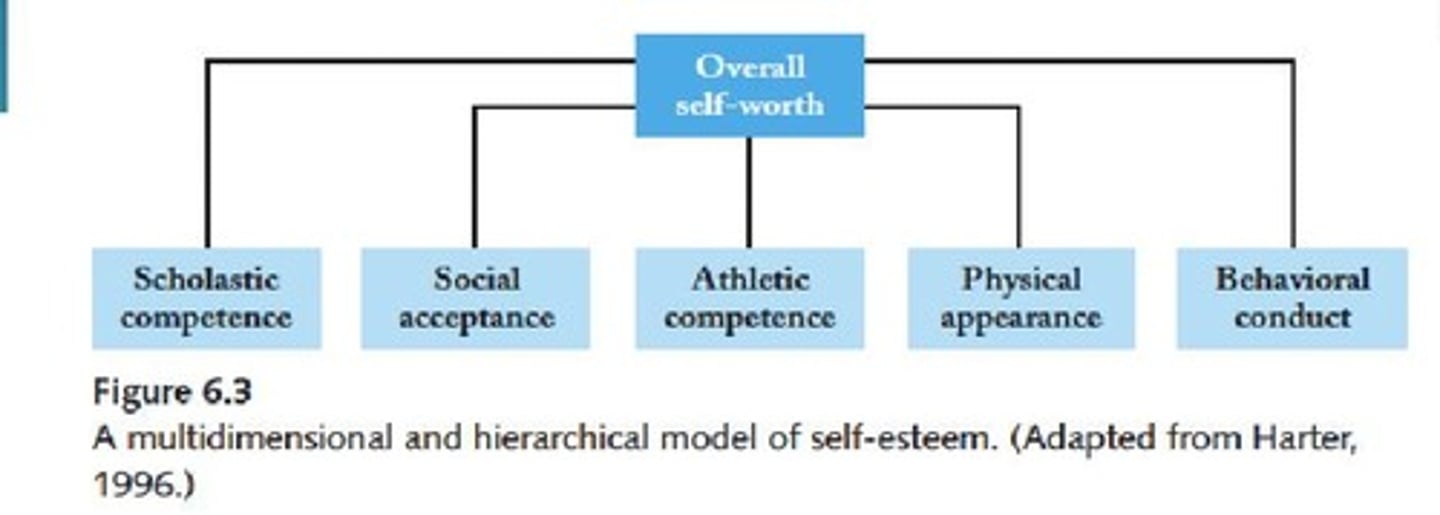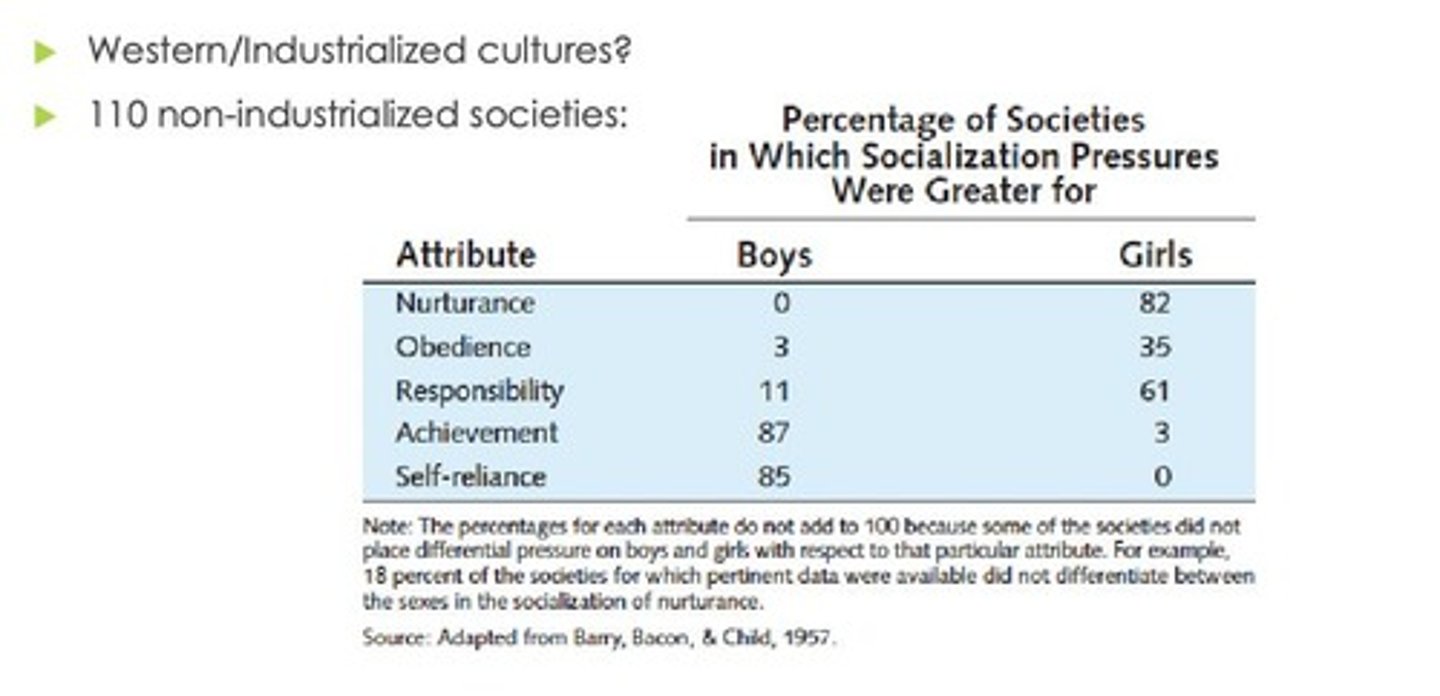Self-Concept II & Gender Development
1/26
There's no tags or description
Looks like no tags are added yet.
Name | Mastery | Learn | Test | Matching | Spaced |
|---|
No study sessions yet.
27 Terms
Self-Identification
Development of personal identity in toddlers.
Attachment Quality
Influence of caregiver relationships on self-concept.
Looking-Glass Self
Self-concept shaped by others' perceptions.
Symbolic Thought
Cognitive ability to use symbols for representation.
Symbolic Play
Imaginative play assigning new meanings to objects.
Categorical Self
Identification based on physical traits and possessions.
Emergence of Categorical Self
Awareness of differences among individuals.
Private Self
Personal identity distinct from public perception.
Public Self
Identity shaped by social interactions and perceptions.
Theory of Mind
Understanding mental states in oneself and others.
Brain-ToM Model
Specific brain maturation linked to theory of mind.
ToM Deficits
Impaired theory of mind in neurodevelopmental disorders.
Self-Concept Evolution
Shift from external attributes to inner qualities.
Identity Crisis
Conflicting self-perceptions during adolescence.
Self-Esteem
Evaluation of personal worth based on self-concept.

Attachment Style Influence
Secure attachment leads to positive self-evaluation.
Inflated Self-Perception
Overestimation of abilities in young children.
Peer Assessment
Social competencies rated by classmates' perceptions.
Gender Typing
Acquisition of culturally appropriate gender roles.
Expressive Role
Cultural expectation for females to nurture and cooperate.
Instrumental Role
Cultural expectation for males to provide and protect.
Gender Stereotypes
Cultural beliefs about differences between genders.
Nurture Influence
Parental expectations shaping children's gender identity.

Gender Consistency
Understanding of stable gender identity over time.
Gender Segregation
Preference for same-sex playmates in early childhood.
Vocal Pitch Discrimination
Infants distinguish between male and female voices.
David Reimer Case
Nature vs. nurture debate in gender identity development.